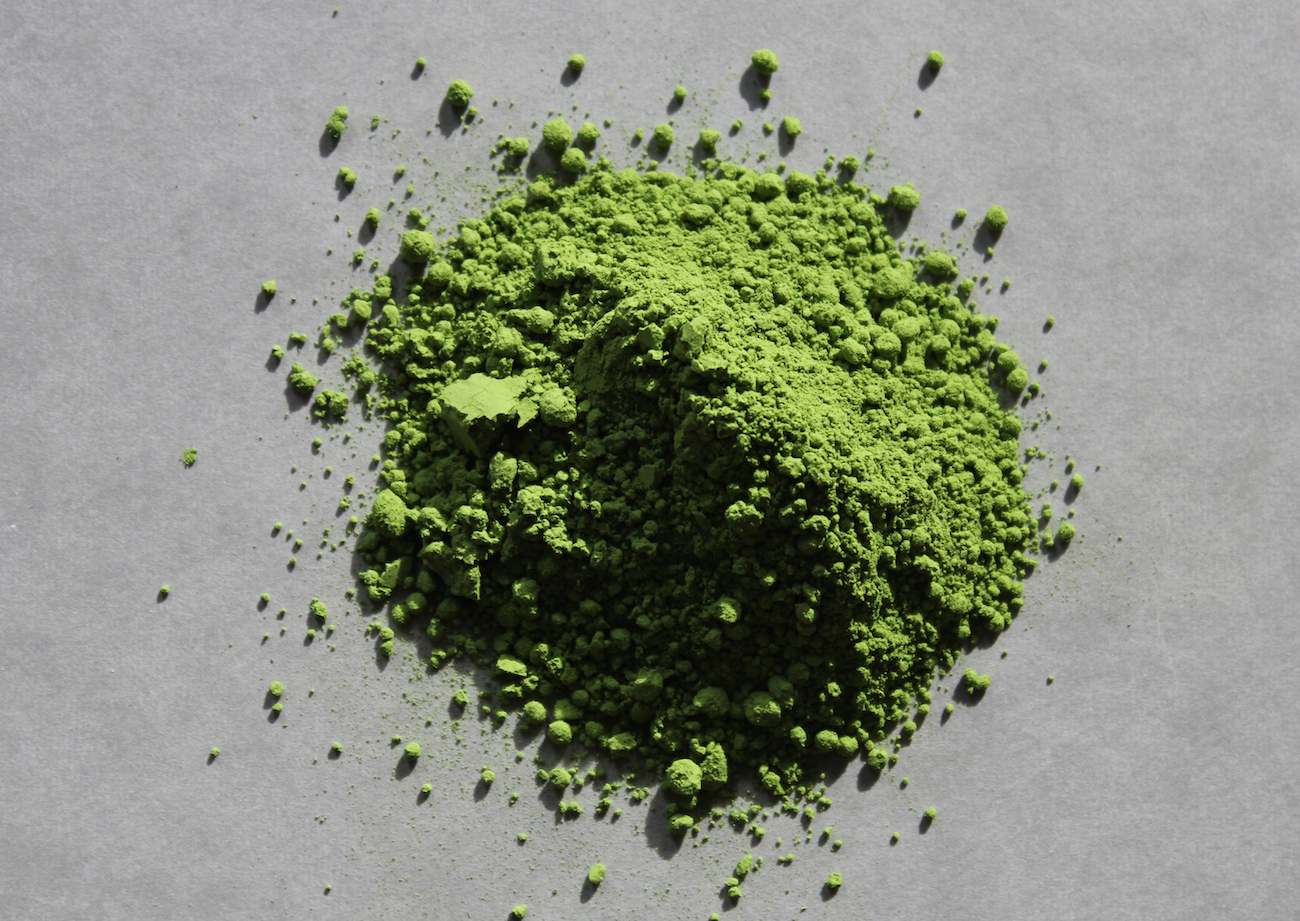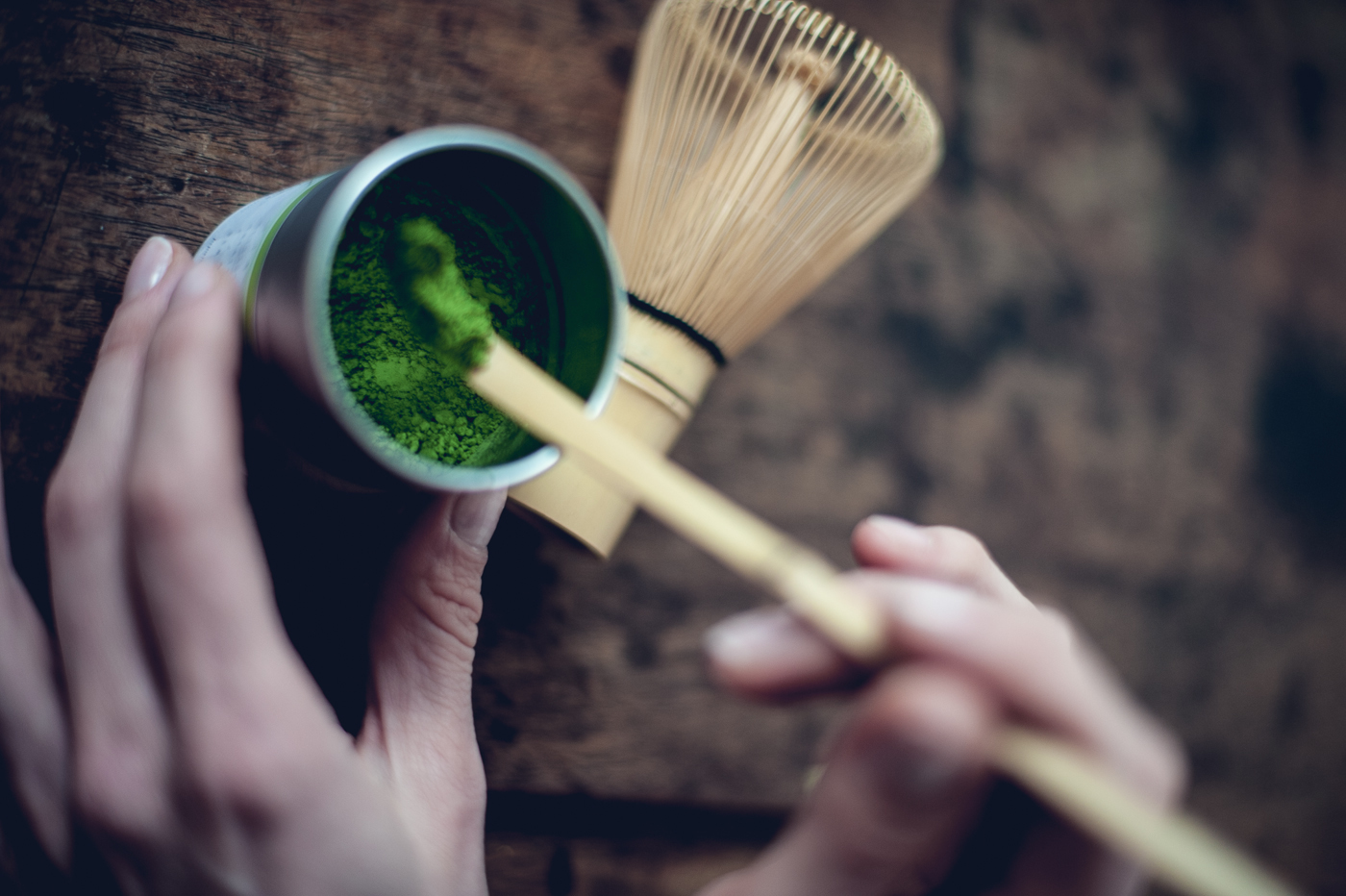Food, Health, Plants, flowers & blossoms, Spotlights
Superfood spotlight: Matcha tea

Oct
Matcha tea is poisonous green, centuries old and on trend. Biomazing explains what matcha is and why everyone should try this superfood.
More than green tea The term matcha comes from the Japanese and means "powdered tea", as matcha is tea powder made from green tea. To produce matcha, whole green tea leaves are ground very finely to preserve the nutrients as much as possible. The silky and intensely green powder has been part of traditional tea ceremonies in Japan since the 12th century and is even enjoyed by Buddhist monks to stay awake and focussed during long meditation sessions.
The effect Matcha is known for its health-promoting properties: it improves concentration, keeps you alert and is a real energy booster. Matcha stimulates digestion, which helps the body to detoxify and lose weight. The powder is particularly rich in chlorophyll, which can detoxify the body of chemical substances and even heavy metals. In addition to chlorophyll, matcha is also an excellent source of antioxidants with up to 20 times more antioxidants than berries or pomegranate seeds, for example!
The green wonder from Japan also has a positive effect on mood: matcha has a balancing and relaxing effect.
Matcha can do even more However, the real reason for matcha's superfood status is its particularly high content of ECGG (epigallocatechin gallate). This substance, a favourite subject of current research, promises to help with chronic diseases such as Alzheimer's, diabetes, multiple sclerosis and even cancer. Research shows that ECGG could fight cancer and at the same time protect the body from chemotherapy. One thing is certain: ECGG counteracts damage to the DNA of cells caused by X-rays or radiotherapy, for example. ECGG also inhibits the breakdown of starch in the body and thus ensures that the blood sugar level does not rise rapidly after eating, it has an anti-inflammatory effect in the body and balances the immune system.
 Pure matcha powder: light green and particularly finely ground
Pure matcha powder: light green and particularly finely ground
Concentration and inner peace Matcha contains up to five times as much L-theanine as other teas. L-theanine is a rare naturally occurring amino acid that influences brain function and contributes to a balanced mood, calmness and a sense of well-being. Research indicates that L-theanine's effect on the brain also improves memory and learning ability. No wonder even children in Japan enjoy matcha every day!
The quality test Matcha is available in different qualities and in widely differing price ranges. There is a simple test to determine how good the tea really is: put a small amount on a piece of paper, place your thumb on the tea powder and slowly draw a straight line on the paper. Good quality matcha feels soft and waxy, the fine powder settles in the lines of the thumb. Less high-quality matcha feels coarser and sticks less well to the finger.
Attention bitter Like many natural and pure - unadulterated - superfoods, matcha is rather bitter. If you want to try out the flavour of matcha, you can enjoy it with milk or plant milk, or use the matcha powder in cakes and biscuits. Tea fans enjoy matcha instead of breakfast coffee (like our blogger Laura here) - there are no limits to your imagination!
